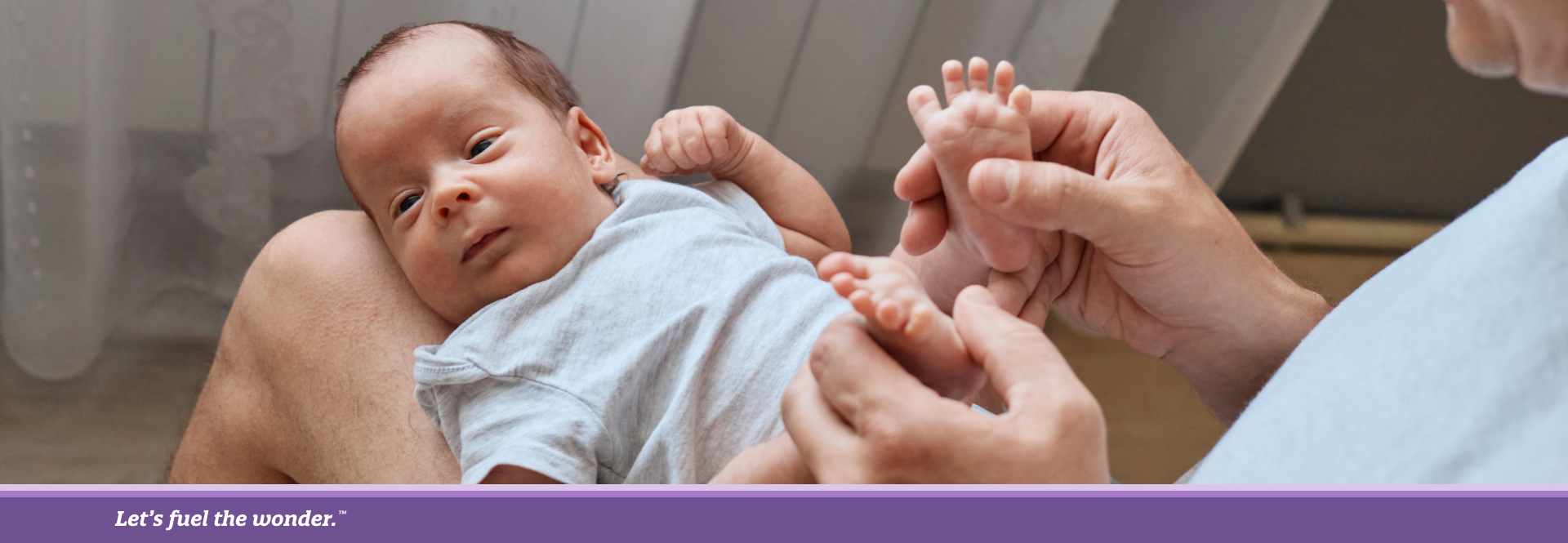When your child is a newborn, your concerns may be a little more specific. Instead of worrying about your child’s friends, you’re worried about your newborn’s bowel movements. Learn about infant dyschezia and what it means for you and your baby.
What Does Infant Dyschezia Mean?
If your newborn looks like they’re having a hard time having bowel movements, that may very well be the case. Healthy infants under nine months of age who spend at least 10 minutes crying and straining before passing a soft stool may have infant dyschezia.1 This functional condition is sometimes referred to as grunting baby syndrome.2
Is Infant Dyschezia the Same as Constipation?
Infant dyschezia is not the same as constipation. The straining and crying in infant dyschezia is likely caused by a lack of coordination of the different muscle groups and not enough abdominal muscle tone needed to have a bowel movement. The stool is soft in infant dyschezia. In constipation, babies are straining to have a bowel movement because the stool is hard and difficult to pass. If the stool is hard, constipation is likely the cause of the crying and straining.3
It is also important to note that infants and newborns are usually laying down while they’re pooping which makes it more challenging to have a bowel movement as they don’t have gravity to help get things moving and have weak abdominal muscles.1
Why Do Babies Grunt During Bowel Movements?
So why does your newborn or young infant grunt so much while having a bowel movement? In order for a young baby to have a bowel movement, two things need to happen within their body:2,3
- The stomach muscles need to tighten and increase pressure in the abdomen to push the stool.
- The muscles in the pelvic floor need to relax to let the stool pass.
Infants with dyschezia haven’t learned to coordinate these two muscle movements in order to allow bowel movements to happen smoothly.3 The grunting and straining occur while they’re trying to tighten their abdominal muscles to push, while their pelvic muscles have tightened simultaneously, holding the stool in.2 The prolonged instances of crying are how infants and newborns increase the pressure in their abdomens and it continues until, almost always by chance or accident, their pelvic muscles relax enough to pass stool.3
Is Treatment Needed for Infant Dyschezia?
Fortunately, infant dyschezia generally resolves spontaneously as the infant matures. No tests or treatments are necessary for infant dyschezia.3 Term babies typically outgrow their “grunting baby syndrome” as they learn how to coordinate their muscle movements, though premature babies may need a little longer.2
If you’re looking for ways to help your baby, talk to your newborn’s healthcare provider about options. If you’re supplementing with formula or formula-feeding, they may recommend switching to a formula that’s easier to digest.
Laxatives, suppositories or any kind of rectal stimulation are not necessary for infant dyschezia.3
Enfamil A+ has a range of nutritionally complete formula options for newborns and infants that are enriched with DHA to promote normal physical brain growth and development. Find the Enfamil A+ product that works for you and your baby.





